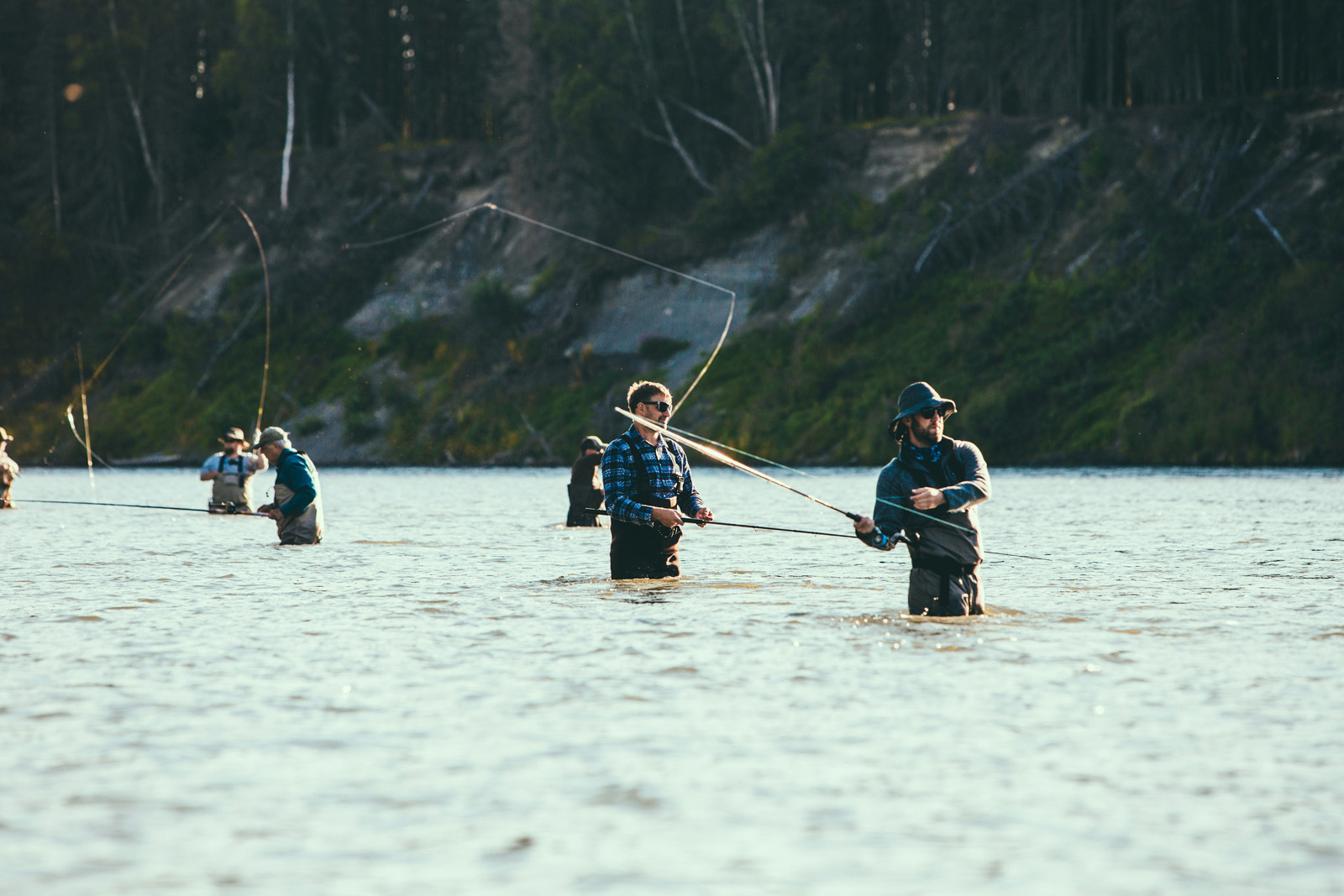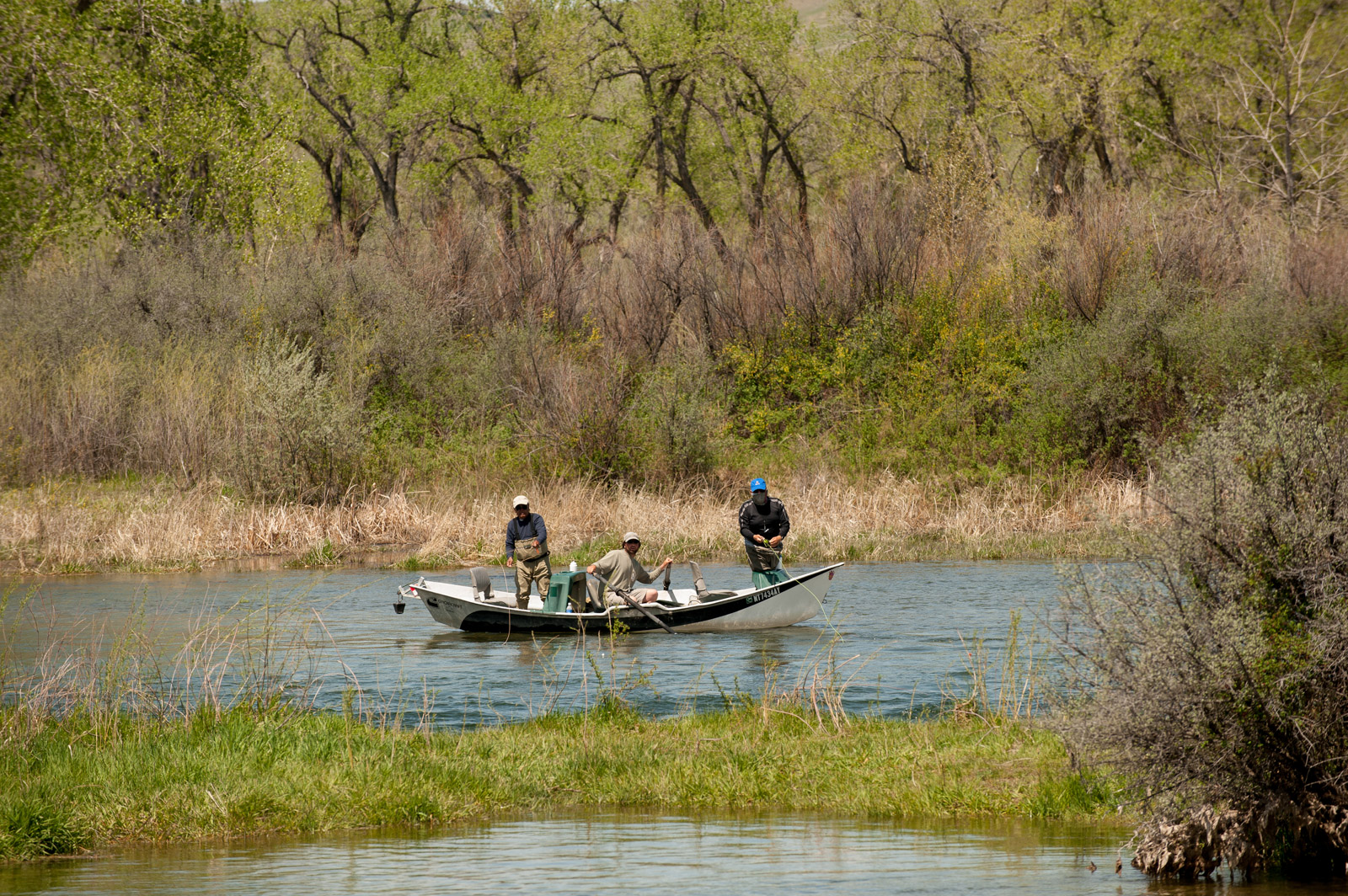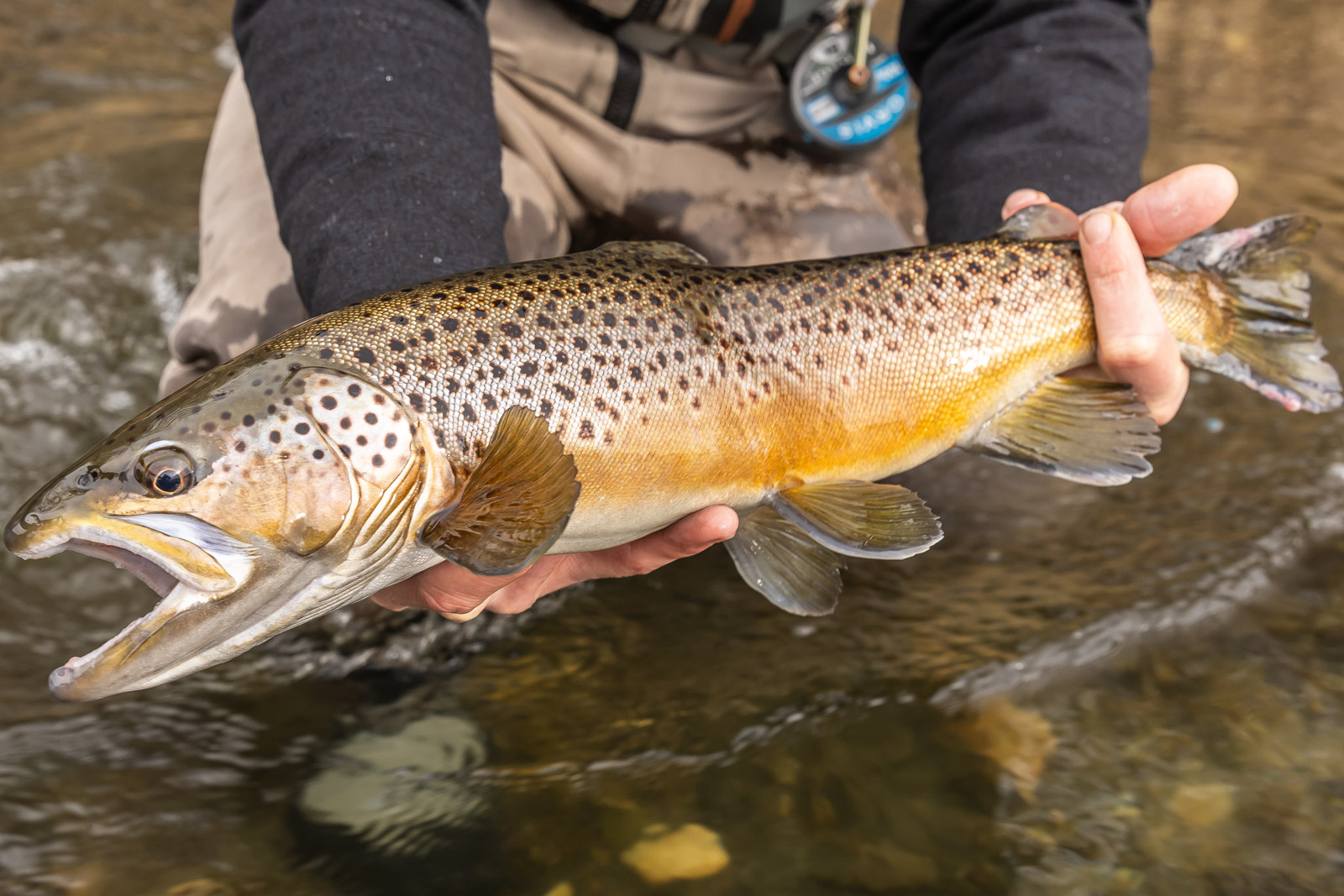Community, Conservation, & Education

by Peter Moreno
The crystal-clear alpine lake boiled with rings as the sun set; hungry trout feasted on surface bugs after their long winter dormancy. My first backcast caught on the small spruce behind me. It took me 30 minutes to rig a new set-up, line slipping through my clumsy hands as I tried to recall the YouTube tutorial on how to tie the proper knot. By then, the sun had dipped below the mountain peaks and the feeding frenzy was coming to an end. It was not until years later that I properly learned how to fly fish and, in turn, fell in love with the craft.
Although I have no regrets about my belated fly-fishing education, I can’t help but feel a loss for the time I missed out on—years of impactful memories, friendships, and bent rods. One thing that could’ve cut my learning curve drastically is a membership to Fly Fishers International (FFI) a community-building organization based in Livingston, Montana that, since its formal inception in 1965, has worked to “to foster the legacy of fly fishing for all fish in all waters” through education and conservation.
Education
FFI’s educational programs provide fly anglers of all levels with the knowledge and skills required to enhance their fishing experience. The organization has created a vast online learning center, which contains a wealth of resources for anglers, including fly-tying tutorials, casting lessons, and videos, ensuring that aspiring fly fishers can access valuable information regardless of their location. This comprehensive resource is the perfect place to start for beginning anglers.
FFI’s Fly Casting Instructor Program is what puts them at the forefront of education. Established in 1992, this program is recognized across the industry as a universal standard for instructors. Passionate anglers who want to share their knowledge can achieve various certification levels as a casting instructor. In turn, eager students or groups can use FFI’s website to find reliable teachers. “I haven’t seen anyone with a program anywhere near as comprehensive and thorough as the FFI has,” says Bill Toone, a Bozeman-based Master Casting Instructor and former editor of Fly Fisherman Magazine.
Education goes beyond simply teaching a skillset in FFI. “It’s a process of developing advocates… someone with a respect for the sport and a willingness to commit time to it,” says Dokson Arvanites, former board member and Casting Instructor Examiner. Many of the groups that reach out to Dok for casting lessons extend beyond the typical angling community. He’s taught veterans, breast-cancer survivors, and support groups of all sorts. By creating a space for individuals to share their enthusiasm, FFI is building communities of knowledgeable and fervent anglers.

Conservation
In 1965, the original founding members saw advances in fly-fishing technology combined with rapid popularity growth and recognized a need to preserve healthy rivers and fish populations. Conservation was a founding principle and continues to be a focus of the organization. FFI, through the leadership of fly-fishing pioneer and conservationist Lee Wulff, can be credited for popularizing the catch-and-release method. Wulff famously wrote, “A gamefish is too valuable to only be caught once.” It’s hard to imagine what our fisheries would look like today without the positive impacts of catch-and-release ethics; indeed, fly fishing has become synonymous with the practice itself.
FFI collaborates with government agencies, environmental organizations, and local communities to support conservation efforts today. “Our strong suit in conservation is bringing a human scale to an issue,” says Blake Parson, FFI’s communications director. “The clubs on the ground are the face and workforce of our conservation work…We can empower people to be a center of conservation wherever they are.”
Through a yearly application process, FFI awards internal grant money to organizations engaging in local projects. In 2021, FFI helped fund the Greater Yellowstone Coalition’s engineering survey for a Yellowstone Cutthroat Refuge on Crandall Creek, a tributary of the Clarks Fork. By promoting environmental stewardship, FFI strives to ensure that future generations can enjoy the beauty of fly fishing in pristine and well-preserved natural settings for generations to come.

Community
The original founding of FFI came from a group of 14 independent clubs across the U.S., all banding together to form a unified organization committed to preserving the legacy of fly-fishing. Today, the global nonprofit is composed of dozens of local affiliates that operate under regional councils to maintain the grassroots structure and connection with communities. The FFI website contains a search engine to find clubs throughout the country—if you’re looking to enhance your angling skills and improve your local fly-fishing community, all while protecting the future of fly fishing, consider connecting with a local club and becoming a member. Or, just avail yourself of the vast education and conservation resources available on the FFI website—because knowledge, like the joy of fishing itself, is meant to be shared. As Lee Wulff put it, “The fish you release may be a gift to another, as it may have been a gift to you.”
To learn more about FFI or to get involved, visit flyfishersinternational.org.
